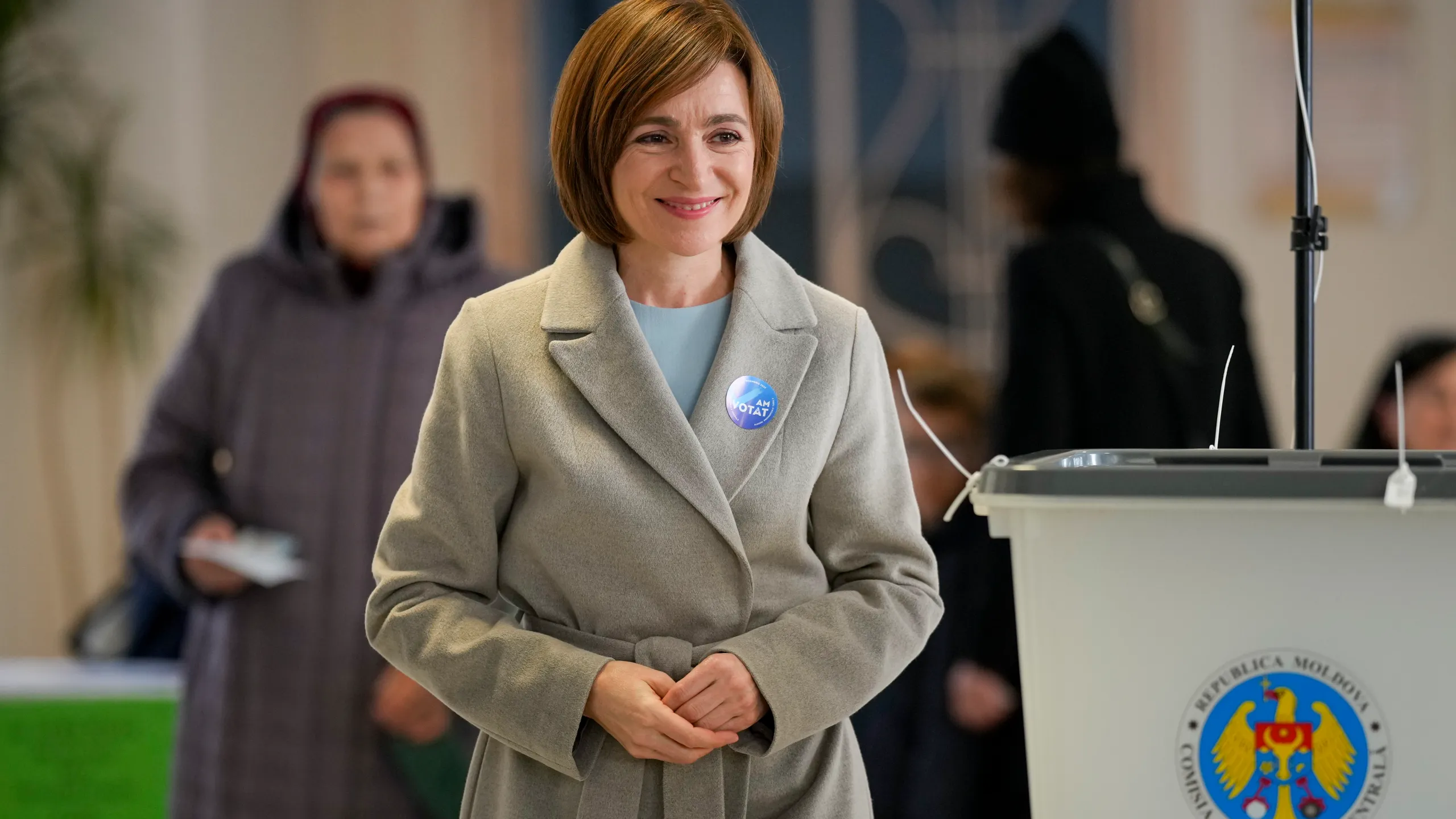Moldova’s recent presidential election resulted in a significant victory for Maia Sandu, a pro-Western leader, who won her second term against pro-Russian contender Alexandr Stoianoglo. Sandu secured 55% of the vote compared to Stoianoglo’s 45%, a win that was celebrated by Moldova’s pro-European government.
Her re-election reaffirms Moldova’s move toward strengthening ties with the European Union (EU), a path that has faced substantial opposition from Russia-friendly political factions. The election, however, was clouded by claims of Russian interference, vote-buying schemes, and intimidation, indicating deep-seated political and social divisions within the country.
After her victory, Sandu delivered a speech lauding the democratic spirit of Moldovans, noting that the election was met with “unprecedented” resistance. She highlighted the alleged involvement of external forces attempting to undermine the democratic process through illegal means, including bribery and manipulation of the vote. Sandu’s message was one of resilience, as she praised the citizens’ commitment to protecting their nation’s independence and democracy amid these attempts at influence from abroad.
Meanwhile, Stoianoglo responded to the preliminary results by calling for unity and respect for all Moldovan voices. Although he has not yet formally conceded, Stoianoglo expressed hope for a future where divisive tactics are set aside.
Voter participation was notable, with a turnout of over 1.68 million people, including a record number of Moldovan diaspora members who overwhelmingly supported Sandu. The high engagement from Moldovans living abroad underscored their stake in the country’s future and was a driving factor in Sandu’s victory.

Maia Sandu Wins Second Term in Moldova’s Pro-EU Push Amid Allegations of Russian Interference
The election has also spurred multiple investigations by Moldovan authorities into alleged vote-rigging and interference tactics. Reports from law enforcement pointed to organized transportation of voters, which is prohibited under Moldova’s electoral code, as well as cyberattacks on the country’s voting system.
Police also responded to bomb threats aimed at foreign polling stations, believed to be intended to halt or interfere with the electoral process. Moldovan officials underscored their commitment to maintaining the integrity of the vote despite these attempts at disruption.
Investigations further revealed an extensive vote-buying operation allegedly orchestrated by Ilan Shor, a wealthy oligarch with known ties to Russia, who has been living in exile. Moldovan prosecutors allege that tens of millions of dollars were funneled through a sanctioned Russian bank to sway votes.
Additional incidents of coercion were reported in Gagauzia, an autonomous region known for its support of pro-Russian policies, where a local physician reportedly forced elderly residents to vote for a particular candidate. These incidents have underscored the challenges Moldova faces in enforcing democratic safeguards amid internal and external pressures.
Sandu’s re-election is a crucial moment for Moldova’s aspirations to join the EU, a goal that has gained traction following Russia’s 2022 invasion of Ukraine. Moldova was granted candidate status in 2022, and recently, the EU agreed to initiate formal membership talks.
Sandu’s victory signals Moldova’s ongoing shift toward Western alliances, but experts caution that the country’s journey will likely be complicated by ongoing pro-Russian resistance. As the 2025 parliamentary elections approach, many anticipate that Moldova’s pro-European movement will continue to face significant challenges from opposing factions, particularly as Moscow seeks to maintain its influence in the region.
